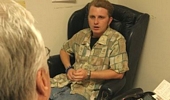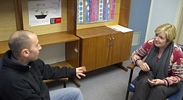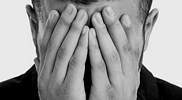|
|
 Acne (1,500) Acne (1,500)
 Addictions (1,500) Addictions (1,500)
 Advice (1,500) Advice (1,500)
 Allergies (1,092) Allergies (1,092)
 Alternative Medicine (1,500) Alternative Medicine (1,500)
 Anti Aging (1,500) Anti Aging (1,500)
 Breakup (1,500) Breakup (1,500)
 Cancer (1,499) Cancer (1,499)
 Dental Care (1,500) Dental Care (1,500)
 Disabilities (1,500) Disabilities (1,500)
 Divorce (1,500) Divorce (1,500)
 Elderly Care (1,498) Elderly Care (1,498)
 Goal Setting (1,500) Goal Setting (1,500)
 Hair Loss (1,500) Hair Loss (1,500)
 Health and Safety (1,497) Health and Safety (1,497)
 Hearing (1,500) Hearing (1,500)
 Law of Attraction (1,499) Law of Attraction (1,499)
 Marriage (1,500) Marriage (1,500)
 Medicine (1,497) Medicine (1,497)
 Meditation (1,499) Meditation (1,499)
 Men's Health (1,500) Men's Health (1,500)
 Mental Health (1,500) Mental Health (1,500)
 Motivational (1,500) Motivational (1,500)
 Nutrition (1,495) Nutrition (1,495)
 Personal Injury (1,499) Personal Injury (1,499)
 Plastic Surgeries (1,500) Plastic Surgeries (1,500)
 Pregnancy (1,496) Pregnancy (1,496)
 Psychology (1,500) Psychology (1,500)
 Public Speaking (1,500) Public Speaking (1,500)
 Quit Smoking (1,500) Quit Smoking (1,500)
 Religion (1,499) Religion (1,499)
 Self Help (1,500) Self Help (1,500)
 Skin Care (1,500) Skin Care (1,500)
 Sleep (1,500) Sleep (1,500)
 Stress Management (1,500) Stress Management (1,500)
 Teenagers (1,492) Teenagers (1,492)
 Time Management (1,500) Time Management (1,500)
 Weddings (1,500) Weddings (1,500)
 Wellness (1,500) Wellness (1,500)
 Women's Health (1,500) Women's Health (1,500)
 Women's Issues (1,500) Women's Issues (1,500)
|
Alopecia areata is an unpredictable disease affecting about 2% of the world’s population and is the second most common type of hair loss after male and female pattern baldness. It is often called spot baldness or patch baldness due to its patchy balding pattern. In severe cases, it can affect the whole scalp (alopecia totalis) or the entire body (alopecia universalis). It is not yet known what causes alopecia areata. It is believed to be an autoimmune disease triggered by a person’s autoimmune system, which decides to attack its own hair follicles. Sometimes the hair grows back a few years later and stays and sometimes it falls out again. Although there is no treatment for alopecia areata that works 100%, some treatments have been proven to improve this condition. The most popular treatment option, which does not require a doctor’s prescription, is topical minoxidil, such as Rogaine. It can be used alone or in combination with other medicinal treatments that will be discussed later. The most common prescription treatments for alopecia areata are corticosteroid shots, injected straight into the bald spot, and steroid gels and creams. Corticosteroid injections are a more effective but also the more painful option of the two. The aim of this approach is to suppress the autoimmune reaction but it has been proven to work only on small bald spots. Another common treatment for small bald spots, which is thought to affect the autoimmune reaction, is the application of topical anthralin. Anthralin is a tar-like substance used to treat psoriasis. Topical immunotherapy is the most common form of treatment for extensive alopecia areata (for more info read: ). It employs an immunosuppressant such as cyclosporine that is applied to the skin to cause a skin reaction similar to mild eczema, which in some cases leads to hair re-growth. This method is also the most radical form of treatment, causing an array of negative side effects. Another therapy for extensive alopecia areata is PUVA, which stands for "psoralen plus ultraviolet A radiation", consisting of a topical or oral application of psoralen, followed by ultraviolet radiation. This method is better tolerated than topical immunotherapy but it is also less effective. A recently conducted clinical study with sulfasalazine also spells some promise for patients with severe cases of alopecia areata. Sulfasalazine is an anti-inflammatory medication first applied to treat rheumatoid arthritis and is hoped to soon be used to treat alopecia areata. This is the overview of the most common medicinal treatments for alopecia areata. There obviously is a number of other alternative therapies that are claimed to help treat this condition and do not require a doctor’s visit. Consumers should be aware that none of these products has ever been clinically shown to be effective in treating alopecia areata and such claims are legitimate only because these products are not regulated pharmaceuticals but non-regulated cosmetics.
|
|
|



